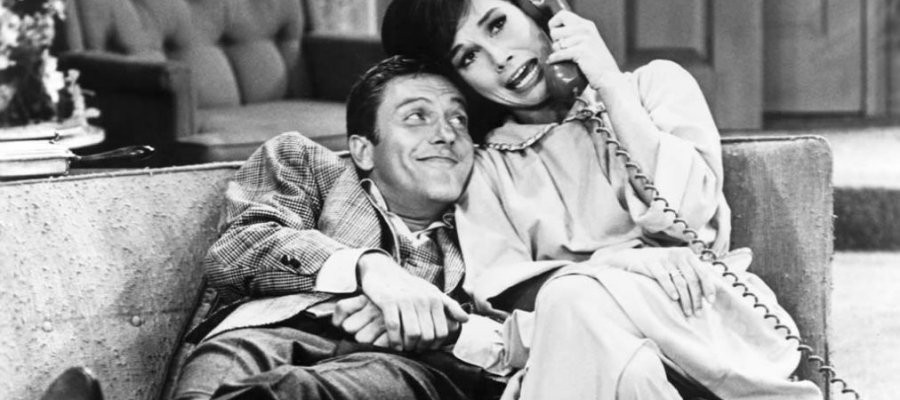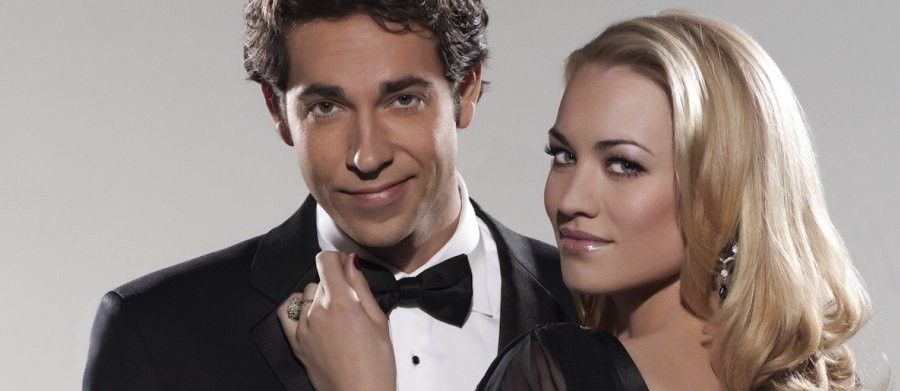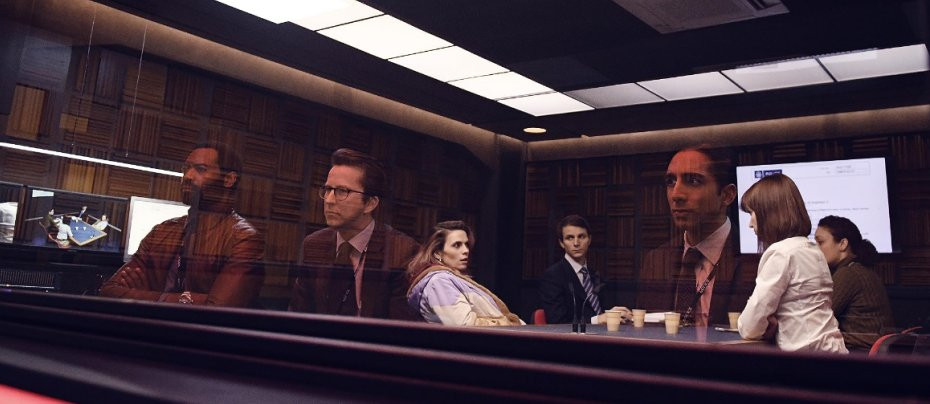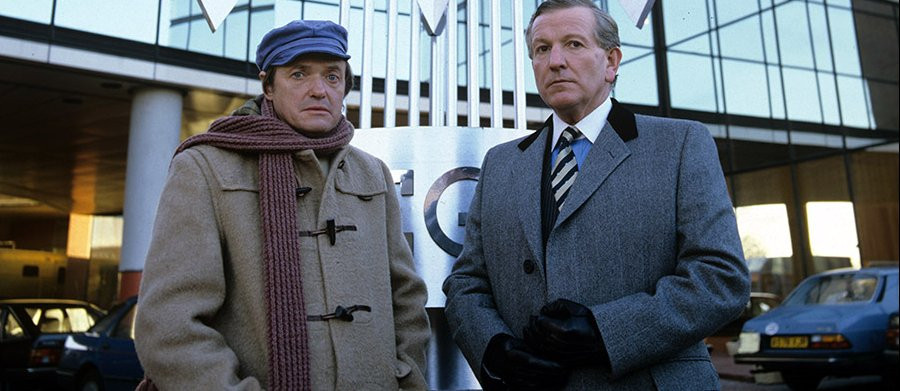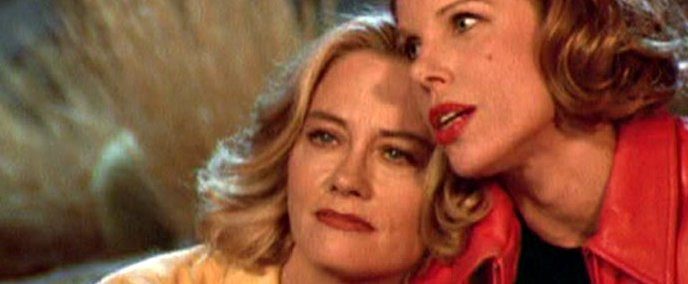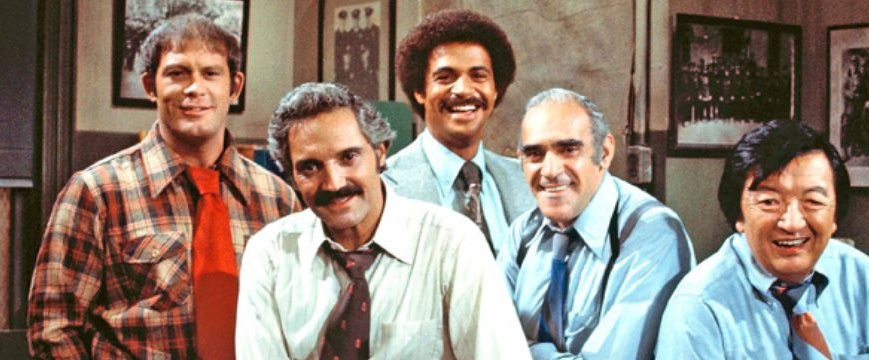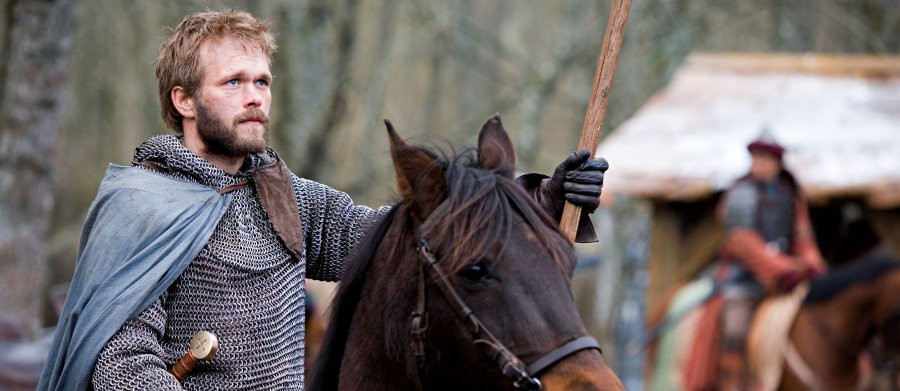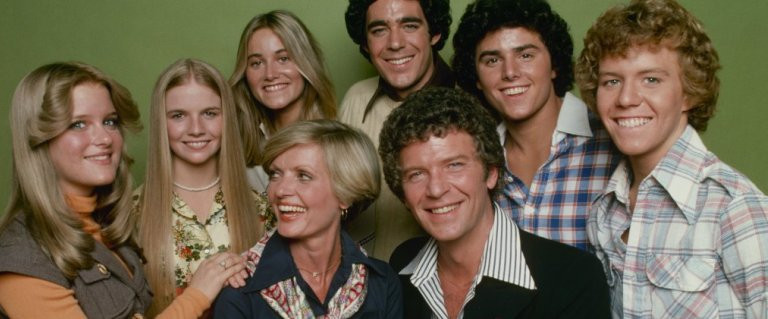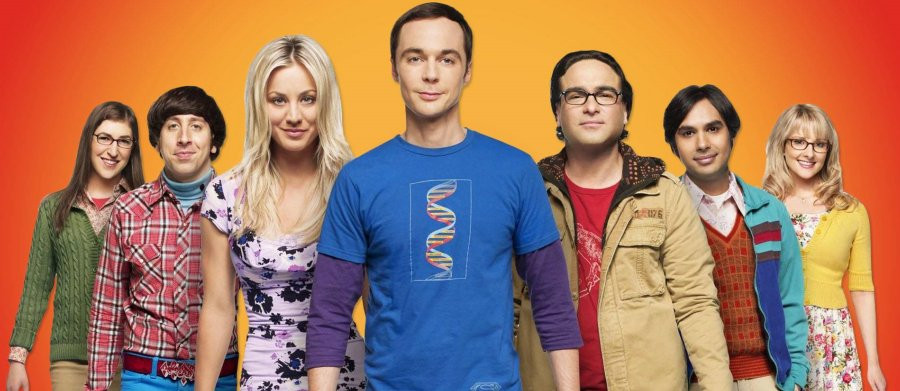
The Big Bang Theory
2007 - United StatesThere are a handful of very successful American comedy shows that define their times. M*A*S*H was really about Vietnam. Taxi was about the sense of dislocation many Americans felt at the end of the Seventies. Cheers reflected that same alienation but also the growing affluence of the Eighties as the characters found in an upmarket bar the fulfilment of their need to belong. In Frasier, they moved on to therapy. In Friends they sought to build new communities based on age group and socio-economic connection in place of traditional communities based on family, location, and religious affiliation.
The long-running Big Bang Theory is part of that tradition. It basically updates Friends for the internet generation. It brings "nerd culture" into the mainstream. Indeed, it seems that the geeks have inherited the Earth.
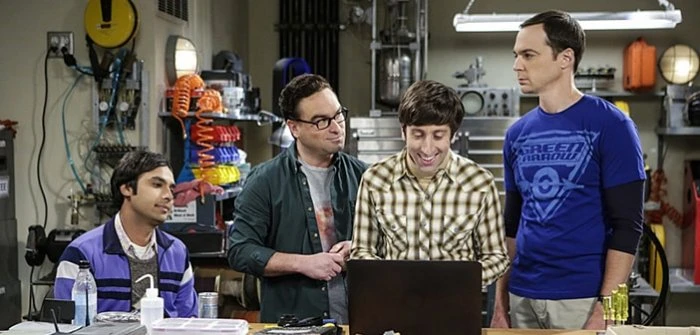
The trick was to make these nerds super-smart scientists at Caltech, the elite university where NASA's Jet Propulsion Laboratory is based. These are not losers living with their parents - well, not all of them - but affluent high flyers. The basic joke is that their social skills are inversely proportional to their academic excellence. They are intellects without emotional maturity.
The format is curiously reminiscent of Puccini's opera 'La Boheme,' based on a novel by Henri Murger, in that it begins with four talented young friends - artists and writers in Puccini and Murger, scientists in BBT. Of the four, two are like substitute brothers - one slightly more worldly than the other - while the other two are essentially supporting roles who sometimes get their own arias. This basic dynamic might in turn have been influenced by Dumas' Four Musketeers.
The cosy bachelor world of the four is disrupted by the intrusion of a female neighbour. In Puccini and Murger, she is a shy and consumptive seamstress. In BBT, she is an outgoing and conspicuously healthy aspiring actress named Penny (Kaley Cuoco), who moves in opposite best friends Leonard (Johnny Galecki) and Sheldon (Jim Parsons).
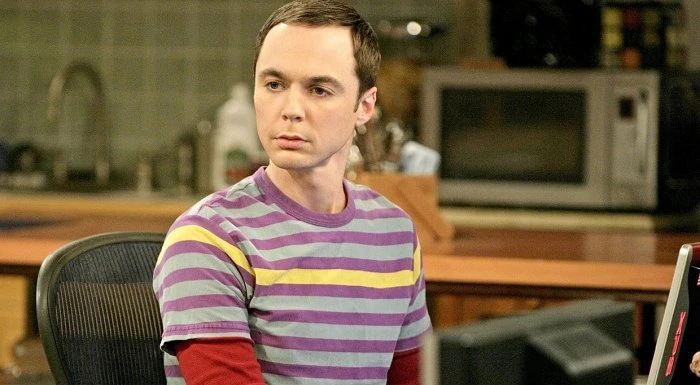
Sheldon, who is both the most intelligent and the most socially inept of the four, was the "breakout character" from the start. Indeed, there were times when BBT was in danger of becoming The Sheldon Show. There were also times when it was in danger of being seen as making fun of serious psychological issues. It was made clear that Sheldon was immature rather than high functioning autistic - "My Mother had me tested" became a standing joke - but sometimes the difference may not have been obvious to some viewers.
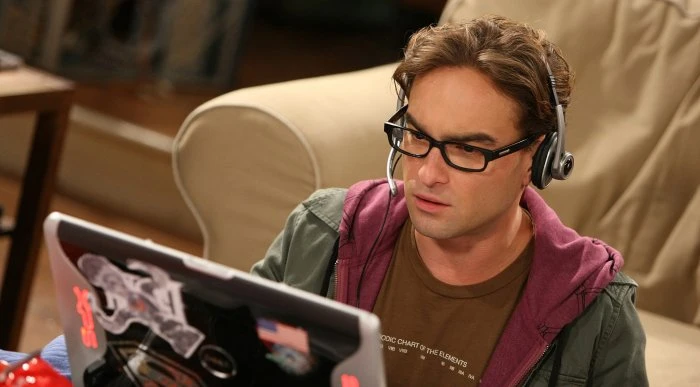
Leonard, is the most normal of the group, relatively speaking, and has an understandable crush on Penny. Completing the quartet, Howard (Simon Helberg) is Jewish and has an unjustified confidence in his ability to attract women, while his best friend Rajesh (Kunal Nayyar) is Indian and has no confidence at all with women, despite being easily the best looking of the group (fun fact: in real life, Nayyar is married to a former Miss India).
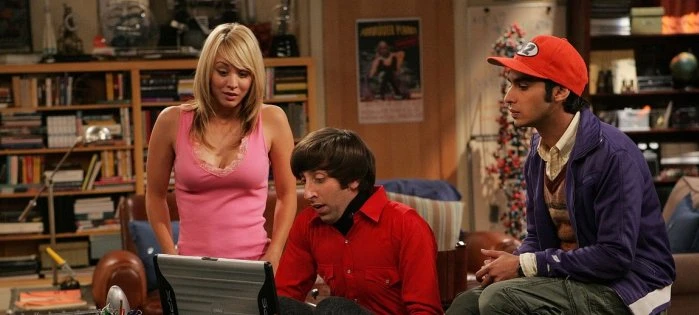
Most of the humour derives from their failures with women, and from the clash between their nerdish subculture and the mainstream, usually represented by Penny. Some of the best episodes show that Penny is, most unwillingly, beginning to be influenced by them, for example when she becomes addicted to online gaming, or when, in a surprisingly touching scene, she gives Sheldon his perfect Christmas present, a sample of "Spock's DNA."
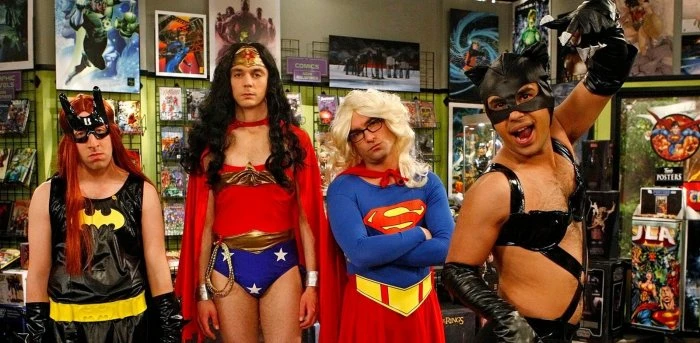
The dialogue is almost invariably sharp and funny, littered with casual knowing references to actual science, computers, 'Star Trek' and 'Star Wars,' role playing games, Comic-Con, and the like. It is through them that geek culture has entered our world, as it entered Penny's, perhaps more than we realised or intended.
Yet, influence operates in both directions. Mainstream culture in turn intruded on the group's little world and forced them to grow up. At that point the show became less interesting. Young men are amusing in their twenties when obsessed with sex and (usually) not getting it, less so in their thirties when beginning to start families of their own.
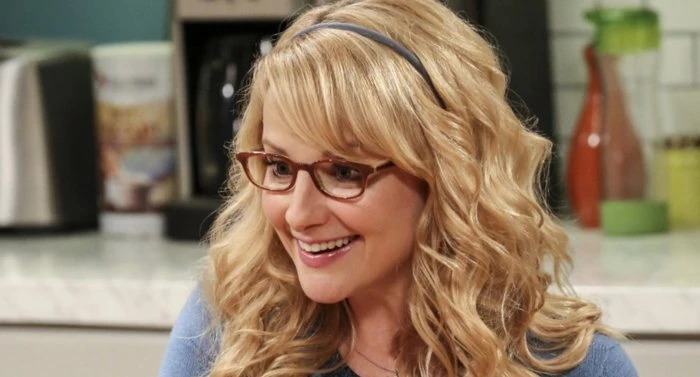
The show dragged on for an incredible twelve seasons, which was undoubtedly too long. It did, however, get a definite adrenaline shot with the introduction of new female characters: Howard's acquisition of a pretty blonde bride, Bernadette (Melissa Rauch), was as unlikely as it was perfunctory, but pairing up Sheldon proved an unexpected success as Amy (the excellent Mayim Bialik) was a finely drawn character with a definite arc. Her transformation from a rather brusque and defensive loner into a particularly likeable member of the group is the best thing in the later seasons (another fun fact: Bialik, like her character, has a PhD in neuroscience).
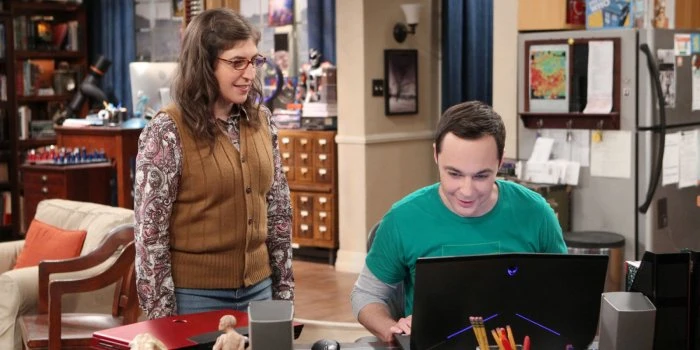
It could be argued that the show "jumped the shark" at a very early stage when Leonard's unrequited love for Penny becomes inexplicably requited. "He started to wear me down," she jokes, but it is not really a joke. She also "grows up," not necessarily in a good way, as she gives up on her dreams of being an actress. It is implied that she was never a very good actress, so her realisation that it is not going to happen for her is shown as an act of maturity, but she loses some of the joy that made her so attractive. Her marriage to Leonard is therefore a compromise - a sensible compromise, but would this be enough to keep two people with little in common together in the long term?
It is just as well the series ended when it did. One suspects that if we stayed with their story much longer, it would have become rather sad.
As it is, the show remained entertaining to the end: amiable rather than warm, clever rather than profound, and witty rather than hilarious, one can still rewatch almost any episode at random and find something to enjoy, so long as one is not taking it too seriously. It is comedy, after all.
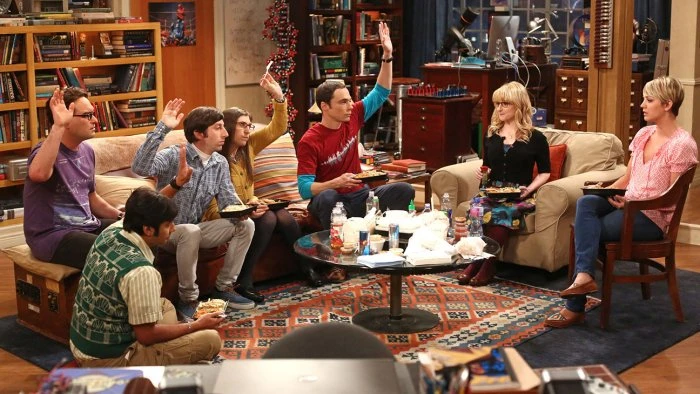
About the reviewer: John Winterson Richards
An experienced freelance writer as well as a consultant, John Winterson Richards has been commissioned and paid to write over 500 articles in print and online. He was a regular guest on the Mind Your Own Business podcasts and a major contributor to that website's blog.
He is the author of 'The Xenophobe's Guide to the Welsh' and the 'Bluffer's Guide to Small Business.'
Under the name Charles Cromwell, John is the author of three novels, 'Young Herod,' 'Seven Days in Jerusalem,' and 'Leonardo Investigates: Death in Pisa.' All can be downloaded from Amazon.
He is the co-writer, with Andrew Harman, past Head of History at Filton High School, of 'The Context of Christ: the History and Politics of Judea and Rome, 100 BC - 33AD', also available on Amazon Kindle.
Seen this show? How do you rate it?
Seen this show? How do you rate it?
Published on November 5th, 2019. Written by John Winterson Richards for Television Heaven.


